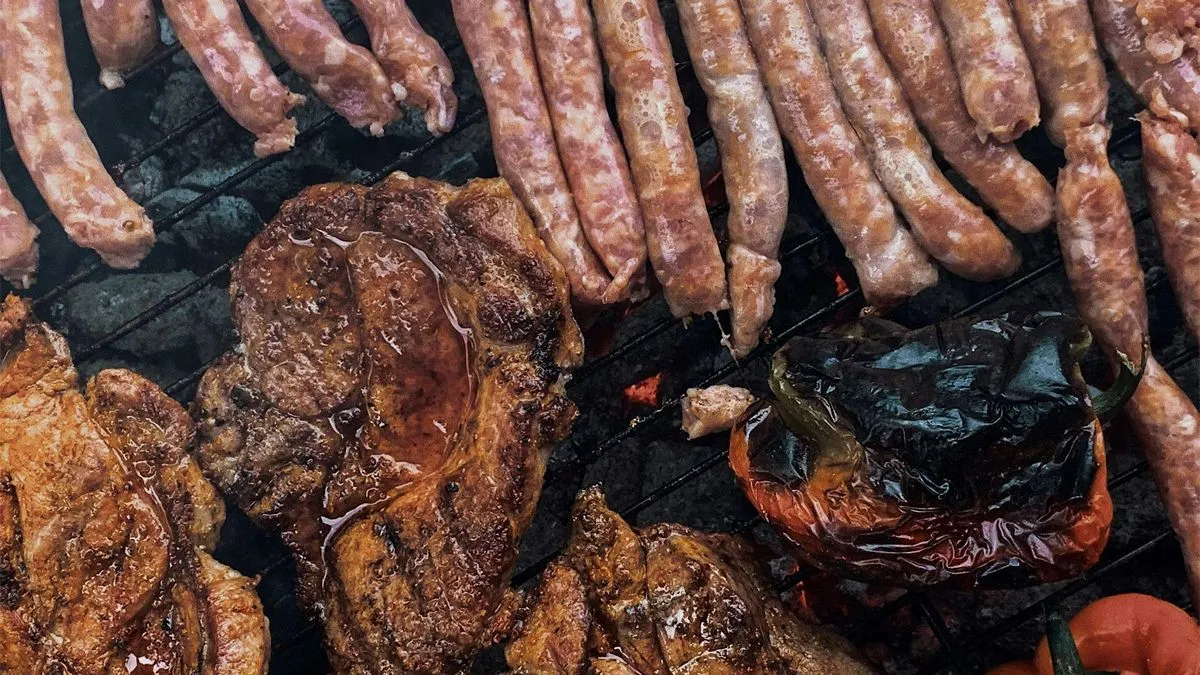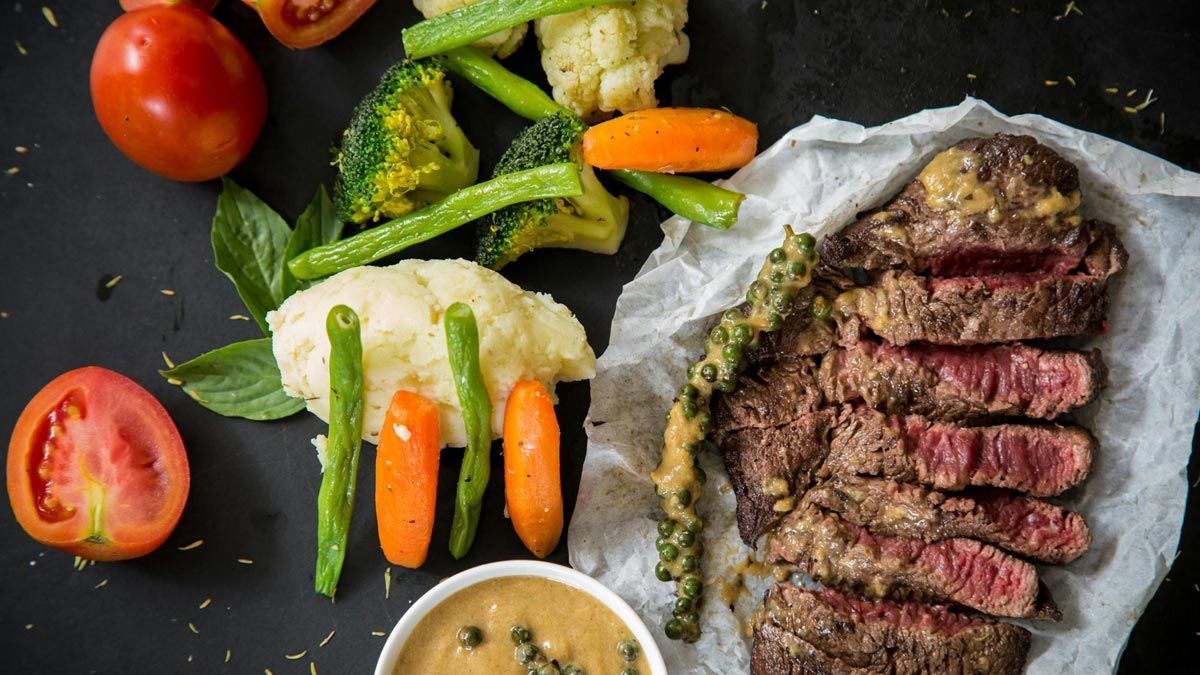
You probably know something about how protein keeps the body healthy, whether that's building muscle, balancing hormones, or just keeping you satiated and full of energy to get through the day. But for so many of us, myself included, getting enough protein throughout the day can feel like a real struggle.
Table of Content:-
Understand Your Protein Needs
There is no simple answer to when the body needs protein because everyone is different, but there are a few key rules that can help you to decide when to stock up on protein-rich foods:
Morning: Recovery and Kickstarting Metabolism
You may have spent all night dreaming about sheep, but your body has been busy, using amino acids to repair tissue and make hormones (among a million other things). These amino acids, like glycine, lysine and glutamine, are primarily derived from protein-rich foods like meat, eggs, and fish.
For this reason alone, a protein-rich breakfast is a great choice, but there are even more benefits. A protein and fat-rich breakfast can regulate your blood glucose, fill you up and keep you satiated for the first part of the day when a lot of us are most productive.
Midday: Sustaining Energy and Activity
After a hard morning's work, you are probably ready for a nap… OR a decent lunch, but how much protein should that lunch include? Well, everyone is different, and it depends on how active your morning was, and the afternoon will be.
If you’ve spent the morning running a marathon before going to work in the afternoon, a protein-rich lunch with some good carbs is ideal. For the rest of us mere mortals, a balanced lunch is a safe bet with a good amount of protein for long-lasting energy as glucose is used up, alongside some carbs to provide easy glycogen breakdown, but not too many to cause an afternoon crash.
Evening: Maintenance and Recovery
As you wind down for the day, it's important to take in more protein, ideally 1-3 hours before bed, to replenish the body so it can repair at night.
Consuming 20–40 grams of protein, especially slow-digesting sources, supports muscle protein synthesis during sleep, aiding recovery from daily activities or exercise. This nighttime protein intake also helps synthesise hormones and repair connective tissues, ensuring optimal recovery and preparation for the next day.

Simple Food Swaps to Boost Protein
Sometimes it's the simple switches that make all the difference; swapping cornflakes for yogurt, mixing rice with beans, or snacking on meat instead of chips, for example. You get the idea, but don’t underestimate the impact it can have. Protein-rich snacks like jerky can be delicious and easy to get your hands on, whether you’re buying packs from the supermarket or making bulk beef jerky at home.
Add Protein to Every Meal
Of course, excess protein can be converted into fat, but it’s not the body's first choice, because, unlike carbs, protein takes longer to digest, helping you feel fuller for longer. By deliberately adding a source of protein to every meal, you can spread your intake throughout the day, keep energy levels steady, and support muscle repair and growth.
Make the Most of Plant-Based Protein Sources
Are you a vegetarian? vegan? Avoiding certain meats for health reasons? Or just don’t fancy fish meat or eggs at every meal? Do not fear, modern supermarkets are packed full of plant-based protein sources.
To Shake or Not to Shake?
If the number of supplement and health shops is anything to go by, protein in powder form is very popular, and it makes sense. Smoothies are a quick and easy way to boost your protein intake without eating half a chicken or breaking the bank. There are, however, some common mistakes people make when it comes to supplementing protein.
Not all protein powders are made equal, and it's hard to distinguish all the flashy labels. Some are specifically formulated as “fast acting” for a quick post-workout bump, while others are slow burners for overnight recovery.
There is also the Branched-chain amino acid or BCAA profile to think about. These three aminos (valine, leucine, and isoleucine) are considered essential amino acids because you have to get them from food; the body cannot synthesise them from precursors like their non-essential cousins. You can get all of them from eating protein-rich foods, but protein powders also contain high amounts of each.
At the end of the day, real meat snacks like biltong or jerky are going to be your best bet as they contain the full BCAA profile you need to build muscle.
Batch Cooking and Meal Prepping
It can be hard enough finding time in the day to sit down for a meal, let alone planning out three meals and cooking them all. This is where meal prepping comes in; it doesn’t have to be anything spectacular, but having simple, high-protein dishes sitting in the fridge makes the day a whole lot easier.
There are tonnes of ways to go about this; I only do three days’ worth of lunches at once, because, well, after eating the same lunch for three days, it’s easy to get sick of it…And start hating meal prepping. But who knows, there are some dishes that most of us could eat every day happily.
Eating Out Without Missing Protein Goals
Why should a cheeky takeaway or dinner with friends ruin your meal plan? It’s entirely possible to stick to your protein goals and enjoy the finer things in life as well. Look for stuff on the menu with fish, beans, meat, tofu, etc., and don’t be afraid to ask for extra protein. Simple things like swapping fries for a side salad topped with chicken or salmon can make all the difference. With a little menu savvy, eating out can be both delicious and protein-packed.
Adding Protein Without Sacrifice
At the end of the day, we want to enjoy food and pack in more protein at the same time, both of which are entirely possible. The trick is to plan ahead - whether that's buying the right snacks, meal prepping or going to a different restaurant.
With these small lifestyle changes and a bit of mindfulness about your choices, you can boost your intake without feeling restricted or missing out on flavour.
Note - This article is written by Brand Desk.
Also watch this video
How we keep this article up to date:
We work with experts and keep a close eye on the latest in health and wellness. Whenever there is a new research or helpful information, we update our articles with accurate and useful advice.
Current Version
Nov 14, 2025 18:05 IST
Published By : Chanchal Sengar
